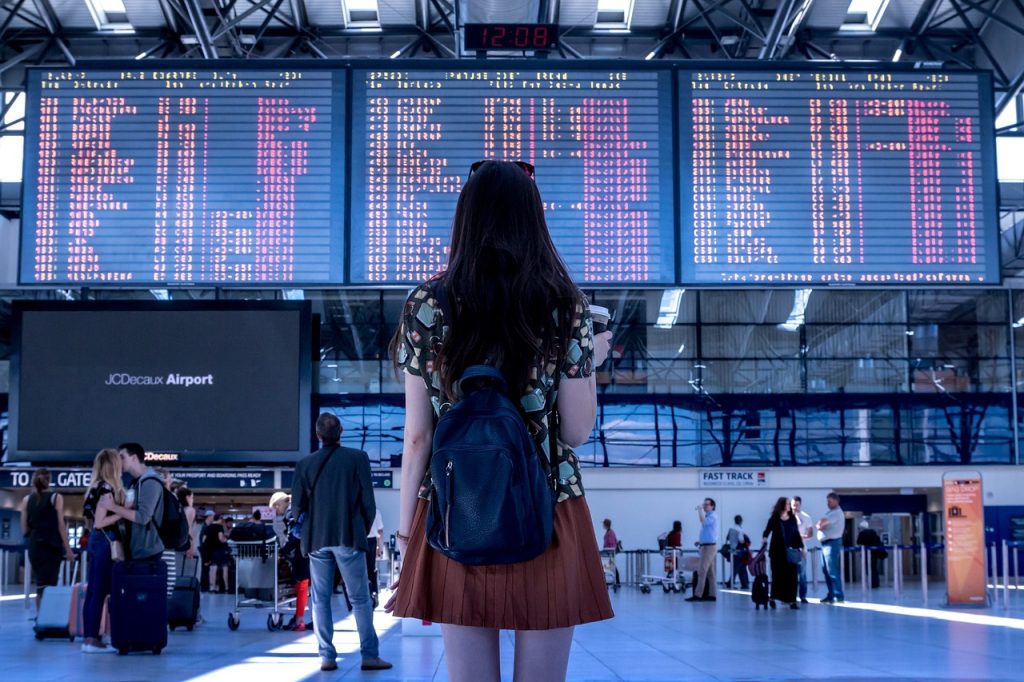Table of Contents
Traveling solo offers a unique and enriching experience that can significantly impact personal growth and well-being. While group trips and family vacations have their merits, embarking on a journey alone provides opportunities for self-discovery, independence, and deepened cultural connections. This article explores the numerous benefits of traveling solo and how it can enhance various aspects of life.

1. Personal Growth and Self-Discovery
Traveling alone is an empowering experience that fosters personal growth and self-discovery. When navigating new environments solo, individuals often confront their fears, build confidence, and gain a better understanding of themselves.
- Independence and Confidence: Handling travel logistics, making decisions, and solving problems independently cultivates a sense of self-reliance and boosts confidence. Overcoming challenges and adapting to unfamiliar situations enhance personal resilience and problem-solving skills.
- Self-Reflection: Solo travel provides ample time for introspection and self-reflection. Without the distractions of daily life or the influence of others, travelers can evaluate their goals, values, and aspirations, leading to greater self-awareness and personal clarity.
- Empowerment: Taking the initiative to plan and embark on a solo journey empowers individuals to take control of their experiences and make choices based on their own interests and desires. This sense of empowerment can extend to other areas of life, fostering a proactive mindset.
2. Flexibility and Freedom
One of the most significant advantages of traveling solo is the freedom and flexibility it affords. Solo travelers can create their own itineraries, explore destinations at their own pace, and make spontaneous decisions without the need to accommodate others.
- Customized Itinerary: Solo travelers have the flexibility to design their trip according to their preferences and interests. Whether it’s spending an entire day at a museum or changing plans last minute, solo travelers can tailor their experiences to suit their desires.
- Spontaneity: Without the need to coordinate with others, solo travelers can embrace spontaneity and explore new opportunities as they arise. This freedom allows for unplanned adventures, discovering hidden gems, and immersing oneself in local experiences.
- Uninterrupted Focus: Traveling alone provides the chance to fully immerse oneself in the travel experience without distractions. Solo travelers can focus on their interests, engage in activities that resonate with them, and fully absorb the cultural and environmental aspects of their destination.
3. Enhanced Cultural Connections
Traveling solo often leads to deeper and more meaningful interactions with people from different cultures. Without the comfort of familiar companions, solo travelers are more likely to engage with locals and form authentic connections.
- Local Interactions: Solo travelers are more approachable and open to meeting new people. Engaging with locals, whether through casual conversations or organized activities, provides insights into the culture, traditions, and daily life of the destination.
- Cultural Immersion: Solo travel encourages a more immersive cultural experience. Travelers have the opportunity to explore local customs, participate in traditional events, and learn firsthand about the history and heritage of the places they visit.
- Building Relationships: Forming connections with fellow travelers, guides, or locals can lead to lasting friendships and valuable networks. These interactions often enrich the travel experience and provide unique perspectives on the destination.

4. Enhanced Problem-Solving Skills
Solo travel requires individuals to navigate challenges and make decisions independently. This process enhances problem-solving skills and adaptability, contributing to personal development and resilience.
- Decision-Making: Without the input of others, solo travelers must rely on their own judgment and decision-making skills. This can improve their ability to assess situations, evaluate options, and make informed choices.
- Adaptability: Solo travelers often encounter unexpected situations, such as changes in plans or travel disruptions. Learning to adapt and find solutions to these challenges fosters flexibility and resilience.
- Resourcefulness: Navigating unfamiliar environments alone encourages resourcefulness. Solo travelers often need to find creative solutions to problems, such as language barriers or logistical issues, which enhances their problem-solving abilities.
5. Self-Care and Well-Being
Traveling solo provides opportunities for self-care and prioritizing personal well-being. The experience allows individuals to focus on their own needs and preferences, contributing to a greater sense of relaxation and fulfillment.
- Prioritizing Personal Needs: Solo travelers can prioritize their own needs and well-being without the need to accommodate others. This can include choosing activities that promote relaxation, pursuing hobbies, or simply taking time for rest and reflection.
- Reduced Stress: Solo travel can be a stress-relieving experience, providing an escape from daily routines and responsibilities. The freedom to set one’s own pace and make personal choices contributes to a sense of relaxation and rejuvenation.
- Personal Fulfillment: Achieving personal goals and experiencing new things alone can lead to a profound sense of accomplishment and fulfillment. Solo travelers often return with a renewed sense of self and a deeper appreciation for their own capabilities.
6. Strengthened Independence and Self-Reliance
Traveling alone reinforces independence and self-reliance, skills that are valuable both during the trip and in everyday life. The experience builds confidence and prepares individuals to handle various situations with greater ease.
- Self-Sufficiency: Solo travelers develop self-sufficiency by managing all aspects of their trip, from planning and budgeting to navigating unfamiliar places. This self-reliance enhances their ability to handle diverse challenges independently.
- Confidence in New Situations: Facing new and unfamiliar situations alone fosters confidence in handling similar circumstances in the future. This newfound confidence can positively impact various aspects of life, including personal and professional endeavors.
- Autonomy: The autonomy of solo travel allows individuals to make decisions based solely on their own preferences and values. This sense of control and independence can lead to increased self-assurance and empowerment.

7. Conclusion
Traveling solo offers numerous benefits that extend beyond the immediate experience of exploring new destinations. From personal growth and self-discovery to enhanced cultural connections and improved problem-solving skills, solo travel provides a unique opportunity for enrichment and development. By embracing the freedom, flexibility, and independence that solo travel offers, individuals can embark on a journey of self-discovery and create lasting memories. Whether seeking adventure, relaxation, or personal growth, traveling alone can be a transformative and fulfilling experience that enhances both personal and professional aspects of life.
